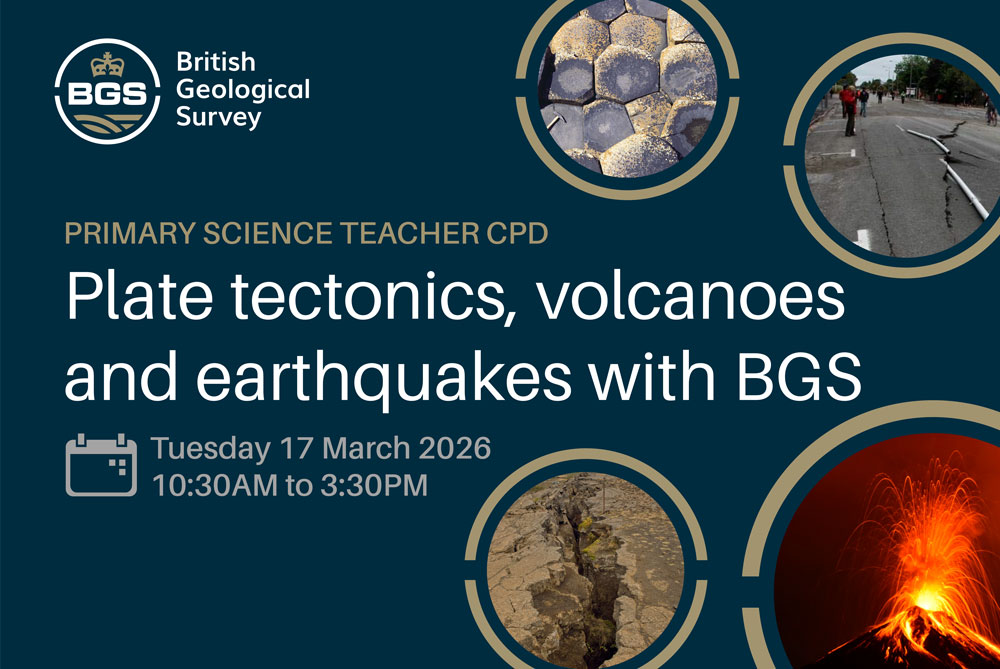Antarctic mountain named in honour of BGS scientist
BGS’s Ian Millar has been honoured for his geological research in Antarctica by having a mountain on the continent named after him.
06/11/2023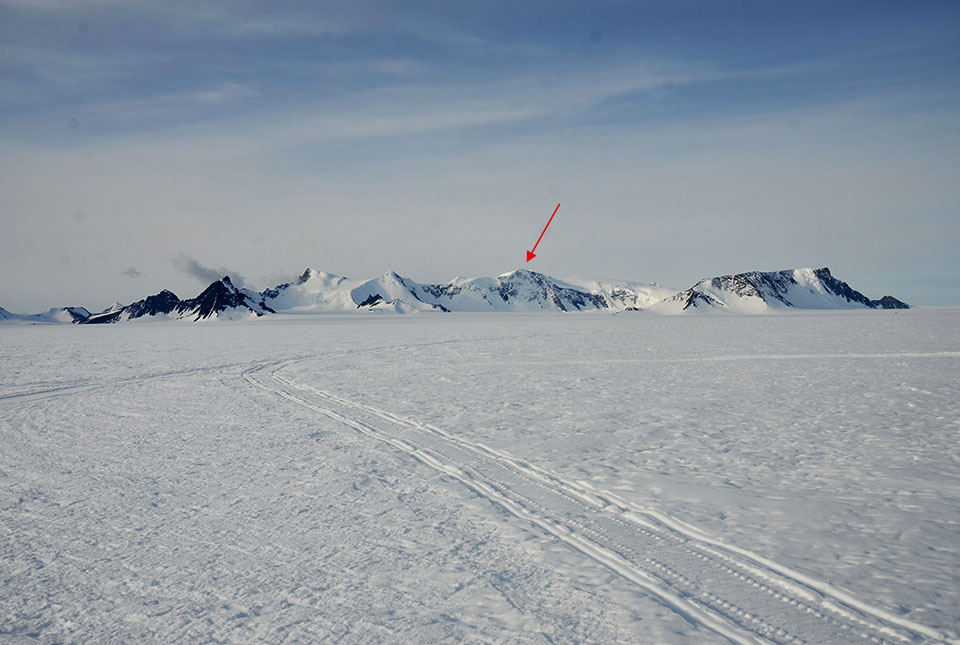
Each year, the Antarctic Place-names Committee recommends new names for geographical features, to honour scientists and support staff who have worked in the region. This year, they have announced that a 2000 m mountain on the southern Antarctic Peninsula will be named Mount Millar after Dr Ian Millar of the British Geological Survey (BGS).
Ian, who works at BGS’s headquarters in Keyworth, Nottinghamshire, worked for the British Antarctic Survey (BAS) for more than 21 years before he became an isotope geochemist at BGS in 2005. During his time at BAS, he took part in several field seasons and cruises in and around the Antarctic Peninsula and Transantarctic Mountains, spending more than a year in total working on the southern continent.
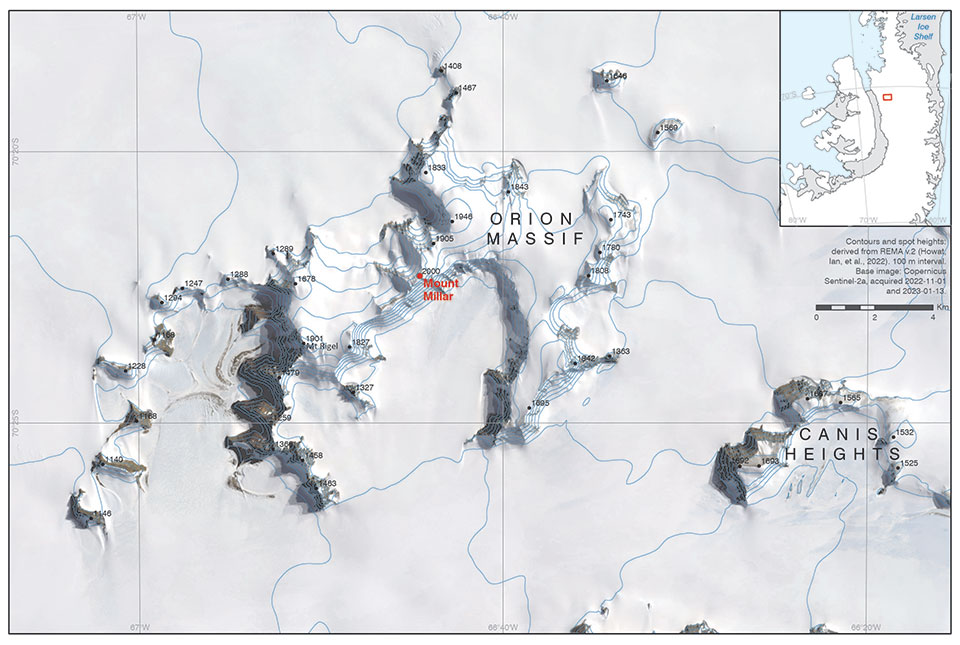
Mount Millar on the map. © UK Antarctic Place-names Committee and British Antarctic Survey.
In 1991, Ian spent ten weeks camping and travelling by skidoo with a field guide in a remote area of the southern part of the Antarctic Peninsula, collecting rock samples in order to determine the ages of the rocks, working close to the location of Mount Millar. His work there contributed to determining the geological history of the peninsula through detailed geochronology.
I have been incredibly lucky to undertake some amazing fieldwork during my career, both in Antarctica with BAS and, more recently, in much warmer regions like North Africa and south-east Asia since joining BGS.
Dr Ian Millar, BGS Isotope Geochemist.
Mount Millar can be found on the Antarctic Place-names Committee’s website.
About BAS
The British Antarctic Survey (BAS) is the United Kingdom’s national polar research institute. It has a dual purpose: to conduct polar science, enabling better understanding of global issues, and to provide an active presence in the Antarctic on behalf of the UK. BAS is a component of the Natural Environment Research Council (NERC), which is part of UK Research and Innovation (UKRI).
About the author
Relative topics
Related news

Funding secured to help mitigate ground risk in UK construction sector
05/02/2026
The BGS Common Ground project has been awarded new funding to help unlock the value of ground investigation data.
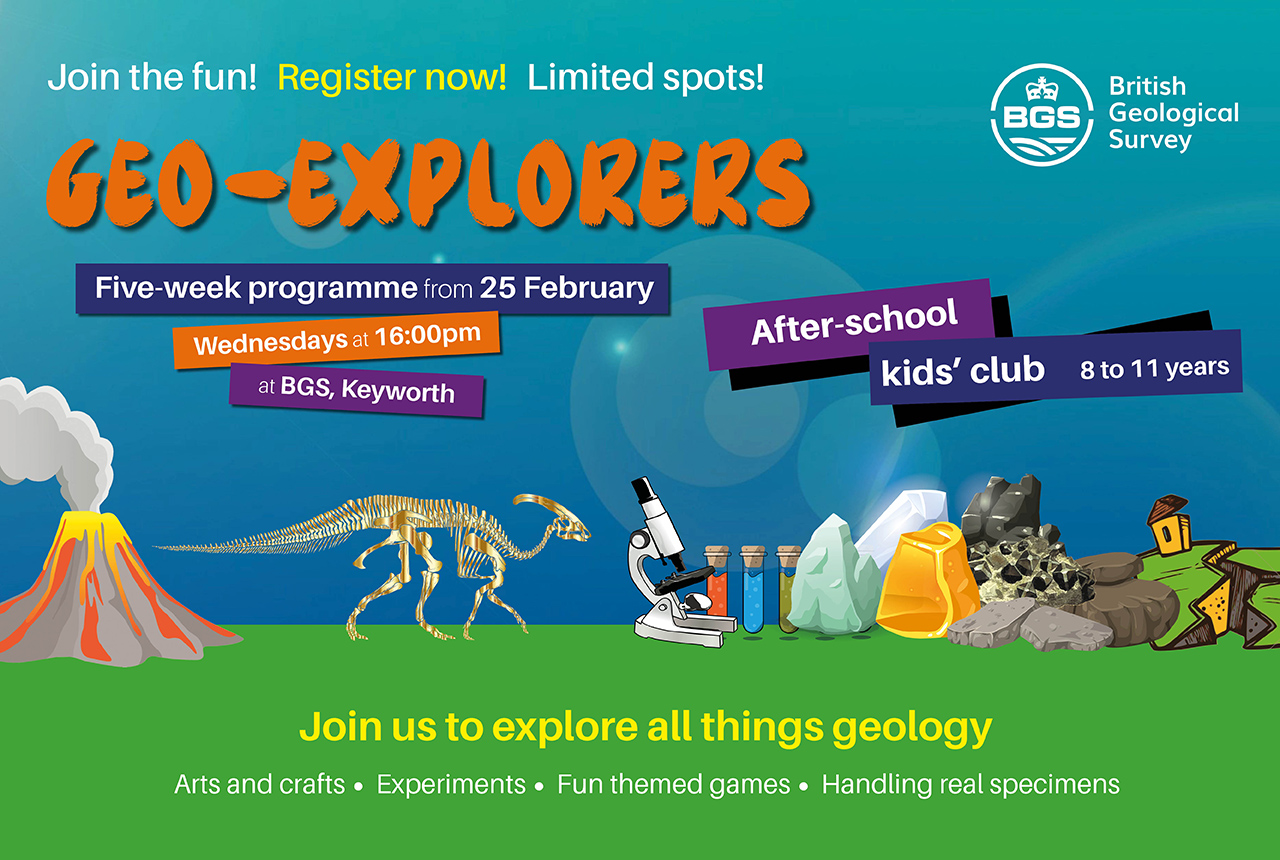
After-school kids’ clubs
Event from 25/02/2026 to 25/03/2026
An after school club for junior geology enthusiasts

Can sandstones under the North Sea unlock the UK’s carbon storage potential?
02/02/2026
For the UK to reach its ambitious target of storing 170 million tonnes of carbon dioxide per year by 2050, it will need to look beyond the current well-studied geographical areas.

Quaternary UK offshore data digitised for the first time
21/01/2026
The offshore wind industry will be boosted by the digitisation of a dataset showing the Quaternary geology at the seabed and the UK’s shallow subsurface.

Suite of ten new soil reference materials released
02/01/2026
BGS has a longstanding track record of producing high-quality reference materials and has released ten new soil reference materials.

Perth and Kinross tops the UK’s earthquake activity charts for 2025
29/12/2025
Seismologists at BGS have published data on the number of seismic events over the past 12 months with over 300 earthquakes recorded.

Hole-y c*@p! How bat excrement is sculpting Borneo’s hidden caves
23/12/2025
BGS researchers have delved into Borneo’s underworld to learn more about how guano deposited by bats and cave-dwelling birds is shaping the subsurface.

BGS awarded funding to support Malaysia’s climate resilience plan
17/12/2025
The project, funded by the Foreign, Commonwealth & Development Office, will focus on minimising economic and social impacts from rainfall-induced landslides.
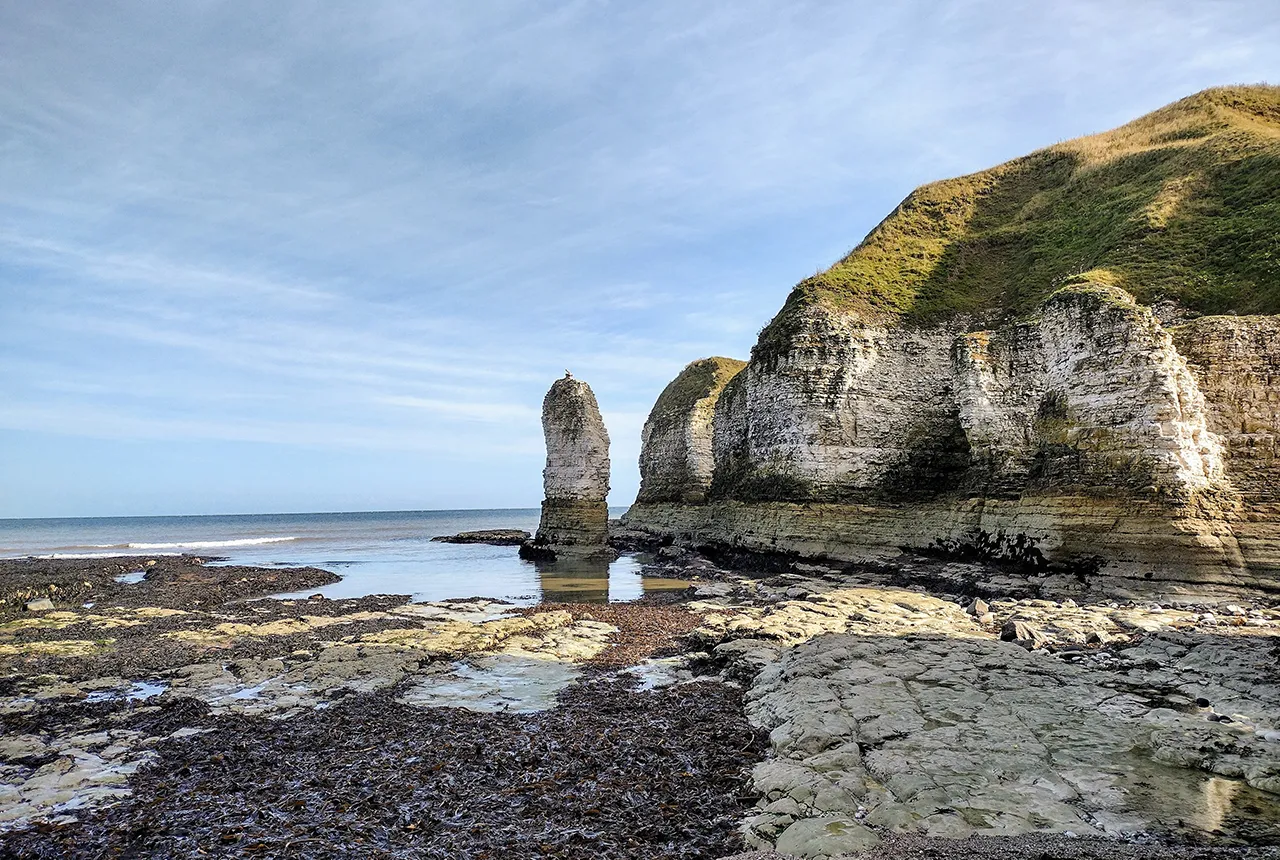
New geological maps of the Yorkshire Wolds to better inform groundwater management and policy decisions
17/12/2025
The new mapping provides crucial data on localised geological issues that may assist in protecting water supplies.
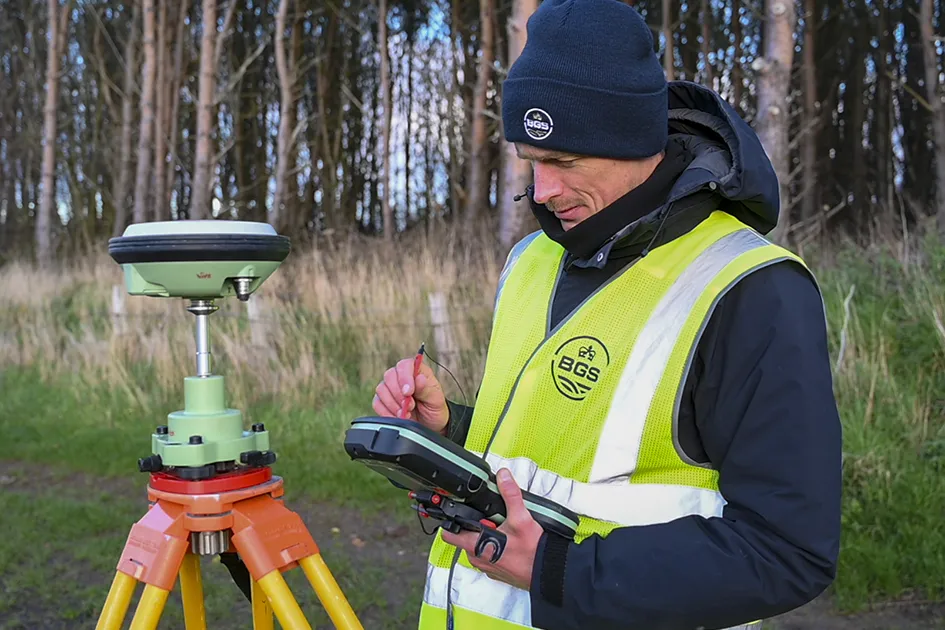
‘Three norths’ set to leave England and not return for hundreds of years
12/12/2025
The historic alignment of true, magnetic, and grid north is set to leave England, three years after they combined in the country for the first time since records began.
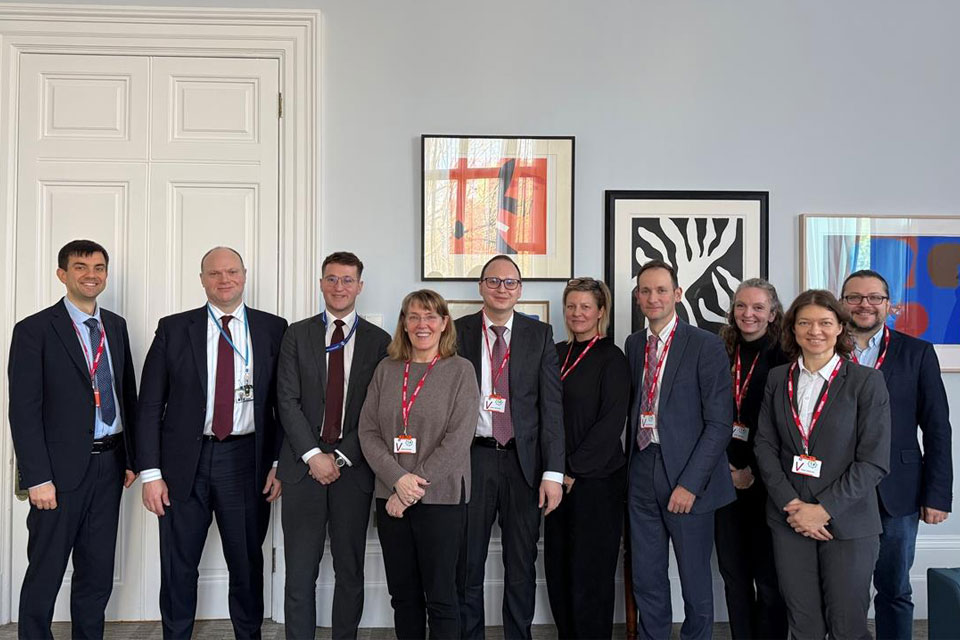
BGS agrees to establish collaboration framework with Ukrainian government
11/12/2025
The partnership will focus on joint research and data exchange opportunities with Ukrainian colleagues.





